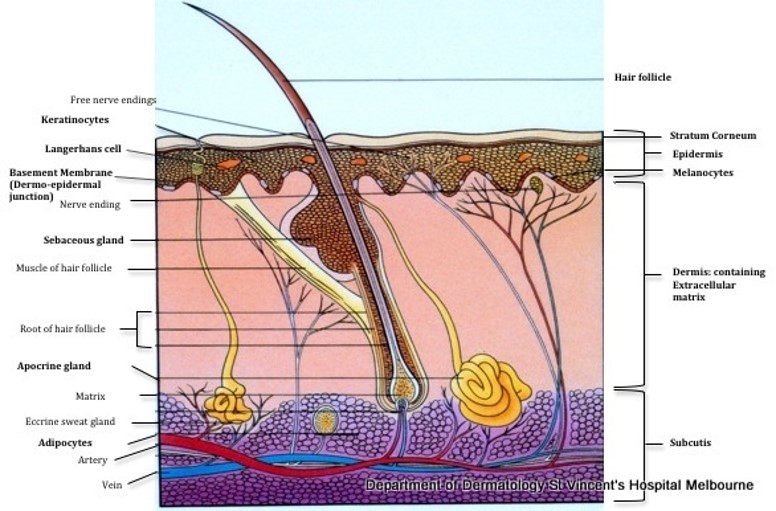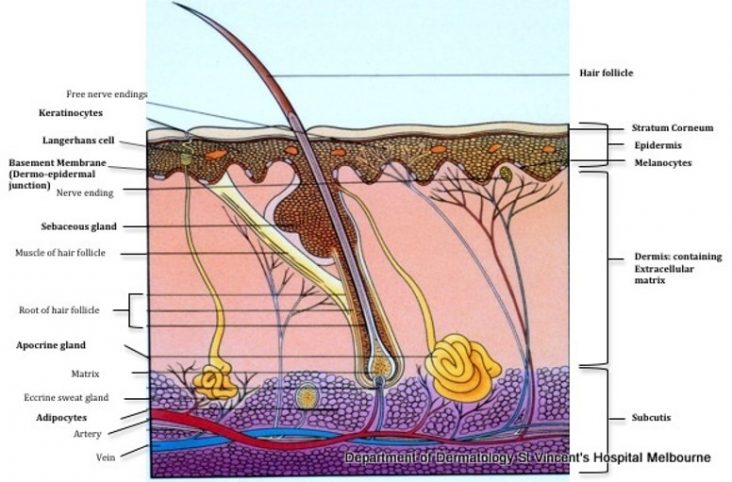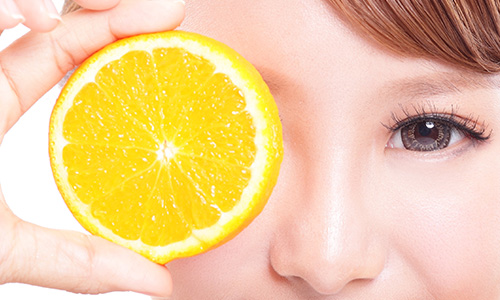
I am a Karachi girl, who grew up here in Karachi and throughout my teenage years, I began to suffer from acne. The acne was a product of my own genetics however, it was aggravated by the humidity and the pollution we all know of this city. My acne problem became my acne scar problem and so I know only too well the pains of having problem skin and how this can affect not only a person’s skin health but their mental health as well. I have always been obsessed with skin because of my acne, so it was only natural as a doctor that I gravitated to dermatology as a subject. These products I have developed are very personal to me as I have created them with the patient in mind. What is must be like for someone with our skin tone, to have skin problems and how these problems are further aggravated by our climate is something I wish one of these big skin care lines would have thought of. No matter, this problem has given me and my team the opportunity to solve this problem and I hope you all try and receive some benefits from these products. My talk today will discuss skincare, cosmeceuticals and what exactly is in the Denovo products.
These days when people talk about skin treatments they talk about Lasers, IPL, Radiofrequency, Ultrasound, LED etc. But they have very little knowledge about their skin care products and what to look for when buying these. It is akin to someone who wants to do a Ph.D. but not know their alphabets ABC.
So, what are cosmeceuticals? Cosmeceuticals are products that are applied topically as cosmetics but contain active ingredients that have medical or drug-like effects. Like cosmetics, they are available without a prescription because they do not need FDA or TGA approval. However, in contrast to many cosmetics, they deliver active ingredients in biologically available form to the skin and reach the target site in sufficient quantity to have an effect.
Skin is not just a cosmetic covering, but it is the largest organ of the body and has many physiological functions as well. Our skin has 3 main layers Epidermis, Dermis & Hypodermis. The epidermis is the top layer the surface of which you see as your skin. It consists of layers of cells that grow upwards from the basal layer till they reach the surface when they are discarded. In a young skin, these cells are packed neatly and uniformly. Among the basal layer of cells are pigment cells that produce melanin in response to various stimuli. Dermis, the middle layer consists of collagen & elastin fibrils and also the blood and nerve supply. A young dermis is thick, juicy and uniform. It gives the skin its elasticity and bounce. Hypodermis is the fat layer under the dermis. When we are young we have lots of fat under the skin which gives us those beautiful curves.
So, what happens when we age?
When we age our epidermis thins out and become disordered & disorganised. It does not grow at the same level and has problem shedding the top dead layer which start piling up, making our skin look rough and dry. Also, the pigment cells instead of producing a homogenous pigment develop areas of increased pigmentation causing our skin to become blotchy.
Dermis also thins out losing collagen and sinks in places causing wrinkles. In Hypodermis the subcutaneous fat disappears causing volume loss under the skin causing further sagging. This is amplified by the bone resorption in old age.
So, when we talk about topical cosmeceuticals, they have effect on the top 2 layers and do not penetrate fat layer. Another important thing to consider is that the cellular layer of Epidermis takes about 30-60 days to come from the basal layer to the top of the skin. So any cream promoting an overnight effect is a farce. You should give at least 6-8 weeks to any cosmeceutical to see its full benefits. Same goes for skin lightening products which require time to act on the pigment cells to block pigment production.
So, what is the ABC of DeNovo Dermal Solutions? In other words what are the active ingredients present in DeNovo Skin Care?
The first A are the Acids. The Acids present in our range are alpha hydroxy acids Glycolic acid and Lactic acid & beta hydroxyl acid Salicylic acid. Acids have now become the corner stone of any exfoliating skincare & peels. They improve skin texture by promoting shedding the dead skin cells from the surface of the skin by dissolving the glue that holds them together. Salicylic acid is also particularly useful in people with oily or acne prone skin because of its fat solubility and ability to penetrate pores.
The next A is the antioxidant that has revolutionised anti-ageing industry. It is Vitamin A and/or its derivatives medically referred to as retinoids. Topical Vitamin A has been shown to improve the appearance of photo damaged skin by reducing fine lines and wrinkles. It also improves skin laxity or looseness. And to top it off it inhibits excess pigmentation and lightens the skin. So if there has to be just one anti- aging skin product, this is it. This is the Holy Grail product.
Next A is the Argireline or Acetylhexapeptide-8. Peptides have come a long way and the new research about how they benefit skin is remarkable. So what are peptides? Peptides are amino acids which are the fundamental building blocks of the skin. Without peptides, the skin doesn’t remain intact and the result is a loss of firmness, the appearance of wrinkles, texture changes and the skin that doesn’t bounce back as it once did. What’s so fascinating about these peptides is that abundant research has clearly shown how they teach skin to do what’s required to help revitalise these building blocks. This Argireline along with other peptides such as palmitoyl tetrapeptide-7 which forms part of a group of peptides called Matrixyl 3000 in our products have water binding and skin restoring properties.
Then we have Algae extract which is a hydrolysed marine extract, a rich source of poly saccharides for the skin. In simple words, it is a good emollient and texture enhancer. We also have Allantoin in our products which has soothing properties.
Moving to the B of skin care. Most important in this category is Vitamin B3 or Niacinamide. There is great deal of research data on this particular vitamin proving how it benefits skin. Among these benefits is the ability to visibly improve the appearance of enlarged pores, uneven skin tone, fine lines, dullness, and a weakened skin surface. It also mitigates the damage environmental attack can cause and is stable in the presence of heat and light. High dose oral Nicotinamide is also used as chemo prevention of Non- melanoma skin cancers and Actinic keratosis.
Other B’s in our products is Vitamin B5 or Panthenol. Panthenol is an extremely good humectant because of its ability to attract and hold moisture.
Next B on the list is a blocker of sun. What can I add on benefits of sunblock? Numerous studies suggest that 70% of our ageing is photo ageing as opposed to chronological ageing. And if you can just block those harmful rays, half of the battle against skin ageing would be won. There are lots of misconceptions about SPF or Sun Protection Factor with lots of products now have 60, 70 or even 100 SPF claiming better sun protection. If you look at the scientific evidence, SPF of 20-30 adequately blocks the harmful rays. Any benefit of increasing the SPF beyond that only marginally increases the protection at the expense of potential irritation to skin due to highly concentrated formula. The most important aspect of sunblock is its religious application. UVB causes sunburn when you go out in the sun, however, UVA is more damaging as it is a longer wavelength and therefore penetrates deeper causing photo ageing and increased melanin production. It also passes through glass panes, so if you are in the house with glass windows you are being affected by it and therefore should use it regardless of whether or not you are going out. There is also scientific evidence emerging that LED & fluorescent lights in our homes, computer & IPAD screens, and even heat, if you are cooking a lot, causes ageing. The best way to tackle all these is to apply the sunblock early in the morning after washing your face. If you are applying any serum apply it before the sunblock and your foundation can go on top of it. Our Day cream has SPF 25 and is broad spectrum. It is also a good moisturiser and as an added bonus has the skin correcting brightening agent: curcumin.
Moving on to our C of skincare in our products is Vitamin C or Ascorbic acid and its various formulations. Vitamin C is a tyrosinase inhibitor which means it blocks the pigment cells from producing pigment or melanin, so is great for evening out skin tone and lightening the skin. It is promoting collagen production in the dermis making skin thick and plump. The other question people ask is whether oral Vitamin C would have similar benefits for the skin. The short answer is no as only miniscule amounts of Vitamin C reaches the skin after being distributed in the body. Topical Vitamin C must be in adequate in percentage to have an effect and also be a stable compound as it is readily oxidised. Topical Vitamin C is a power house when mixed with other antioxidants such as Vitamin B.
The other C is the Caprylic/Capric Triglyceride which is derived from coconut oil and glycerine. It is considered a very good emollient, texture enhancer, and a very gentle skin replenishing ingredient.
Third C is Curcuminoids. Curcuminoids work by inhibiting tyrosinase activity and blocking the formation of free radicals. They are derived from Curcuma Longa root which is good old Turmeric. Turmeric is known to have anti-inflammatory effects, and therefore the craze of Turmeric Latte these days in the west, something that we have known for a long time. We also have been using it for centuries topically to heal wounds. A comparative study published in a Dentistry journal looking at treating oral Lichen Planus with traditional Triamcinolone steroid and topical Curcumin found that topical Curcumin cleared the lesions of oral Lichen Planus, a pre-malignant condition, better then triamcinolone with minimal side effects.
Curcuminoids have been shown to be very effective in in burns, crush injuries, surgical wounds, psoriasis, sun burn, photodamaged skin and in inflammatory skin conditions such as acne and rosacea. Another clinical trial that was double blind and placebo controlled with 25% topical ointment in 50 melasma patients significantly lightened skin colour with results comparable to 4% Hydroquinone but without adverse side effects.
There are a lot of other botanicals in our range such as liquorice, totarol, horse chestnut extract, yeast, sugar fungus, mushroom extract, golden root extract, and papain that are also beneficial.
So why should you choose DeNovo Dermal Solutions?
Firstly we are so proud to say that our product does not boast any gimmicks. It is purely scientific based. And by that, I mean, we have only used ingredients that are backed by numerous studies. Scientifically speaking Pakistani’s have Fitzpatrick 4-5 skin type which is prone to congestion, excess sebum and hyperpigmentation which as stated is further compounded by our hot, humid and polluted environment. Unfortunately, if you go to the shopping centre, most skincare products are still geared towards Caucasian skins for colder climates. The small percentage of skin care that is made for Asian skin are for Chinese & Japanese skins types. Denovo Dermal Solutions, is our solution to this problem. These products have thorough research and development behind them & have been used in our clinic for more than 2 years. We are so proud of the formula and so happy to see the results with our patients that we have decided to make these products available to the general public. Everybody deserves beautiful and healthy skin and we hope these products can help the men and women of Pakistan with their skin health. As we keep stating – there is no magic formula for healthy and beautiful skin, the answer: is just science, the solution: is just Denovo Dermal Solutions.





